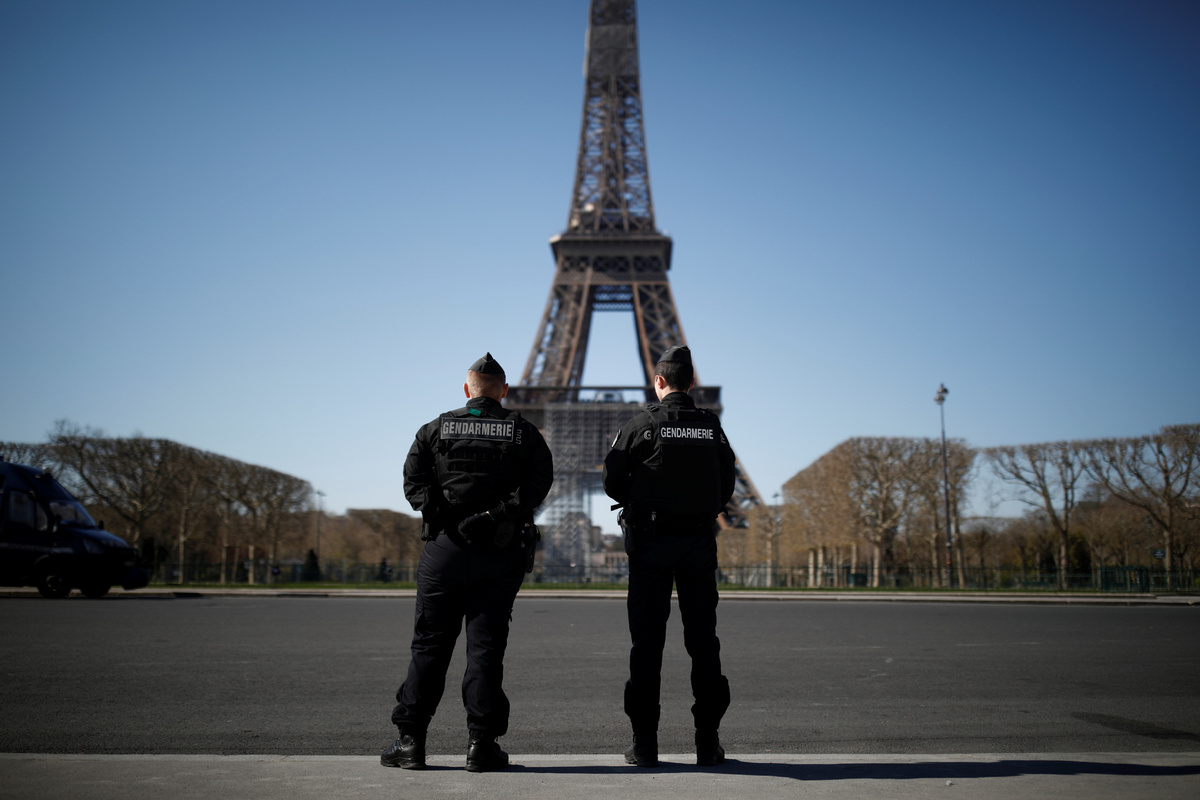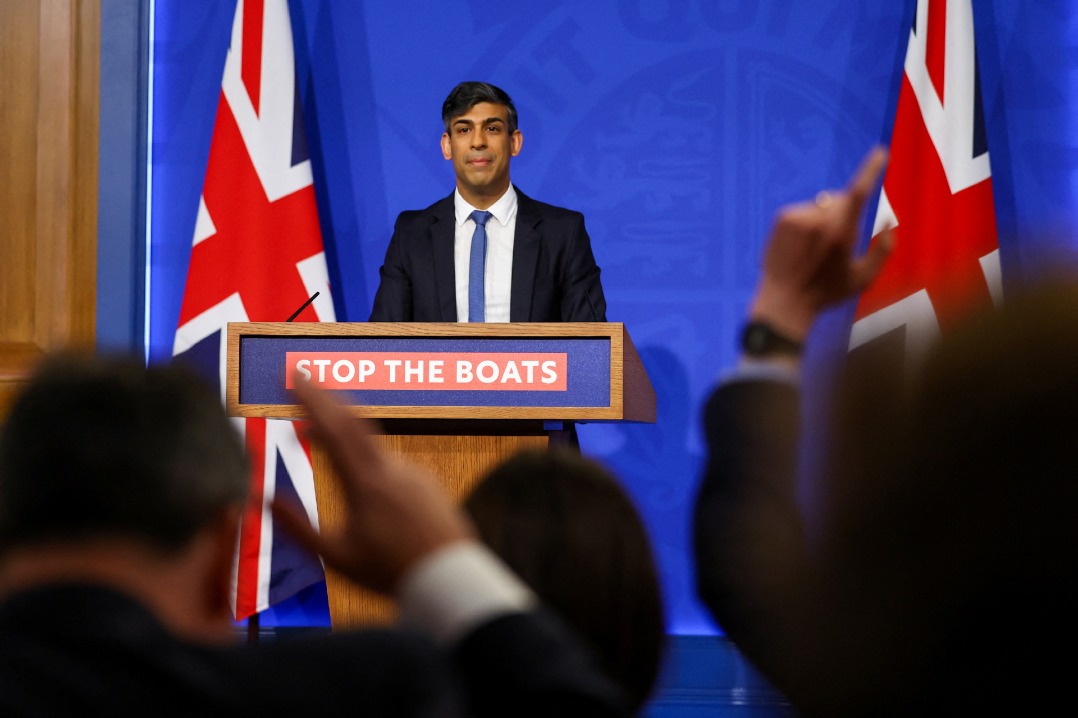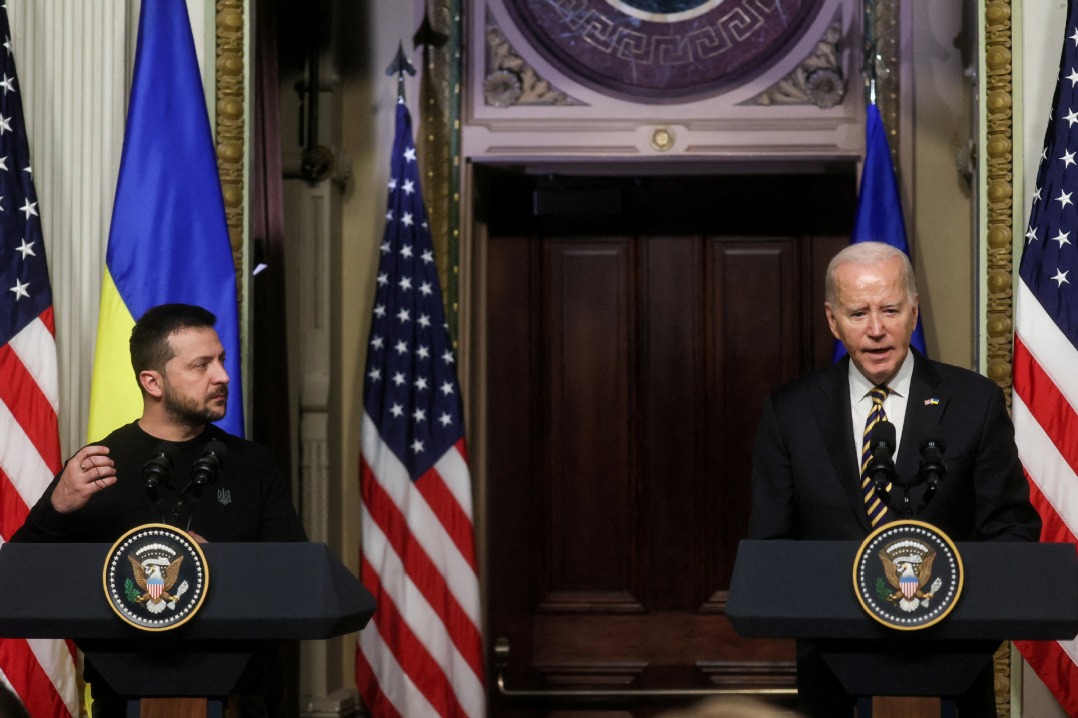Beijing's actions proved right
By Harvey Morris | China Daily Global | Updated: 2020-03-24 14:06

When China took the decision to lock down entire cities and confine people to their homes in response to the novel coronavirus crisis, there was a widespread sentiment in the West that such drastic measures could never happen there.
Within weeks, as infection rates surge in Europe and elsewhere, governments are imposing some of the most draconian social restrictions ever seen in peacetime.
Back in February one United Kingdom-based columnist reflected the then popular view that China might have been over-reacting, writing that: "Responses to epidemics are often attempts by the authorities to show that they are in control, and to shape the public narrative".
In the United States in early March, West Coast entrepreneur and tech guru Elon Musk was telling his 30 million Twitter followers: "The coronavirus panic is dumb."
Two weeks on, 40 million Californians are under lockdown and governments across Europe are ordering people to stay in their homes. Western politicians are now grudgingly acknowledging that the Chinese measures were responsible for confining the spread of the virus.
In Europe, the public and official response has varied according to the different political and social norms in a still disparate continent. The UK government, for example, has been criticized for leaving it to individuals to abide by advice on self-containment and social distancing.
Prime Minister Boris Johnson was reported to have ordered the closure of public venues only after receiving a warning from France's president, Emmanuel Macron, that he would close the Channel crossing between the two countries if the UK failed to take more stringent action.
While France has deployed 100,000 police and paramilitary gendarmes to enforce a lockdown, some senior UK officers have noted that the country has a long tradition of civilian policing by consent.
Stuart Cundy, an assistant commissioner of London's Metropolitan Police, assured an interviewer that "we are not seeing any level of public disobedience" in the UK capital.
While the musical Italians have taken to their balconies to sing the praises of health workers, many British who like to pat themselves on the back for their legendary discipline and calm have been fighting over toilet paper in supermarket aisles.
Across the Atlantic in the United States, it is guns and ammunition that have been the target of panic-buyers.
Elsewhere, politics has been blamed for what is now regarded as the slow and less than coherent response to the crisis in some countries.
In Spain, one of the hardest-hit European states, there was criticism that coalition prime minister, Pedro Sanchez, weakened by the outcome of inconclusive elections, was reluctant to crack down too hard over the novel coronavirus.
He allowed large gatherings to go ahead even as the infection rate was mounting, the critics say.
Differences in the responses to the crisis have even been apparent among near-neighbors.

While Denmark was one of the first European countries to close its borders, shut schools, and close public spaces, Sweden took a more relaxed attitude.
Sweden's state epidemiologist, Anders Tegnell, defended his country's response and said the crisis had revealed unexpected cultural differences between the two Scandinavian countries.
"There's a bigger difference between Sweden and Denmark than we thought," he said. "We speak nearly the same language, we share a lot of history and culture-but we have different social systems, and there are differences in the way the population reacts."
On the fiscal front, governments have responded to the crisis by grasping the need to pump cash into the system to keep their economies going.
The post-Brexit UK has torn up the decade-old austerity rulebook to keep the country afloat. The new finance minister, Rishi Sunak, unveiled a 350-billion-pound ($408 billion) novel coronavirus bailout to help businesses and individual workers.
Within the 27-member European Union, governments also announced emergency national fiscal measures but there was little sign of a unified, continent-wide response.
The European Commission in Brussels acknowledged that it would be largely up to national governments to take their own effective action within existing EU rules.
The guidance was a recognition that national governments are likely to respond to the needs of their own people first, despite the EU's close economic integration.
Spain's PM Sanchez, facing criticism that he might have been slow to act, praised the commission's response to the crisis so far, but said Europe might need the equivalent of the post-war US Marshall Plan for Europe to combat its economic consequences.
"This is a crisis that is affecting all of the EU. We need to articulate a grand Marshall Plan of reconstruction," he said at a news conference. "We are making an extraordinary fiscal effort, but it is important that it is not only at the national level."
In other words, as he might have put it, we are all in this together.
Harvey Morris is a senior media consultant for China Daily UK























